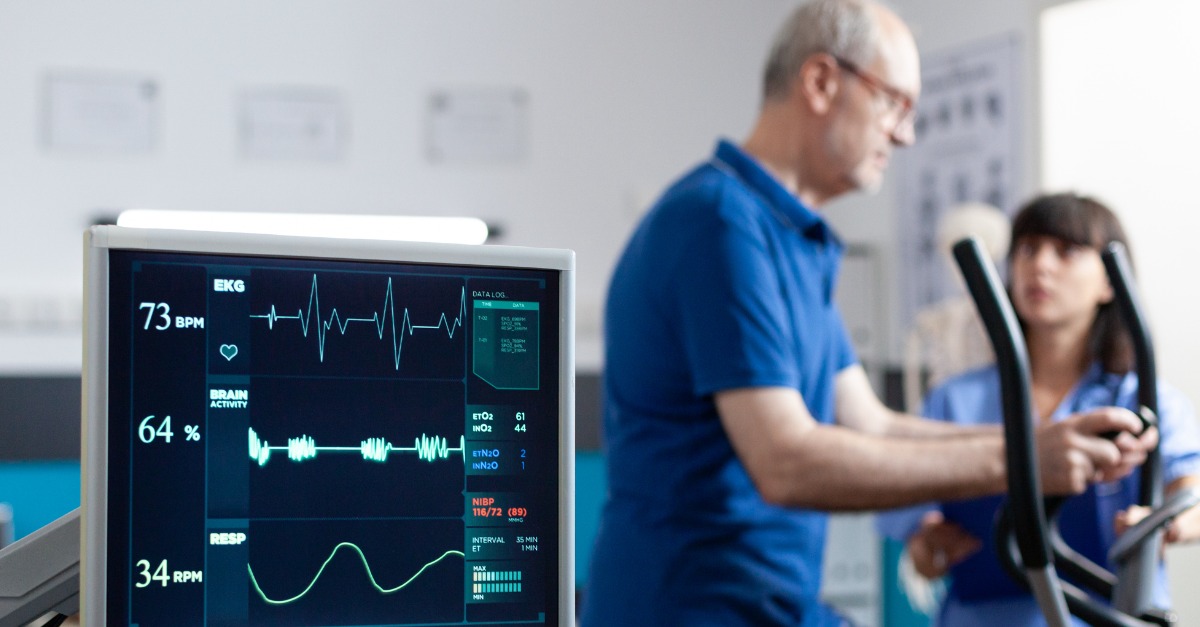Serving the Lowcountry and Coastal Empire of Georgia and South Carolina.
Friday, January 31, 2025

Cardiac events such as heart failure or stroke are life-altering experiences. It’s therefore normal to have an overwhelming mix of thoughts and feelings afterward, from gratitude and hope — to frustration and wariness about the journey that lies ahead. While it will inevitably have its bumps, the road to recovery will be filled with support from our cardiac rehabilitation specialists.
Here, we detail what you can expect from the healing process after a heart event.
Immediately following a cardiac event, doctors work quickly to save lives and stabilize the heart. Cardiac rehabilitation involves all of the care that comes afterward, enabling you to recover to the fullest possible degree while improving your heart health and reducing your risk of future complications.
Within this medically supervised program, you’ll receive education, exercise, and counseling support, with specific elements tailored to meet your individual needs. In addition to covering the physical components of heart health, we also consider emotional and lifestyle factors when structuring rehabilitation programs.
Typically, cardiac rehabilitation encompasses the following main components:
Rehabilitative work can feel tedious at times. Yet, sticking with your program will prove worthwhile, and has been linked to a number of compelling benefits:
Rehabilitation can also help you achieve and maintain better overall wellness, including your emotional and mental health. Patients who stick with their sessions have a lower incidence of depression and anxiety and a better overall quality of life.
Several cardiac events may call for rehabilitation, including surgeries such as coronary artery bypass, angioplasty, stent placement, and heart valve procedures. In some cases, treatments may follow a cardiac event, such as a heart attack. Other conditions that may lead to cardiac rehab could include:
The condition you’re facing will play a significant role in shaping your recovery program.
Our specialists lay the foundation for a strong and effective recovery following a cardiac event, but it’s your commitment that will ultimately promote your long-term heart health. Here are some tips to help you succeed:
If you’ve experienced a cardiac event, SouthCoast Health’s extended network of providers encompasses cardiologists, physical therapists, dietetic counseling, and other specialists to support you through your healing. To begin your journey towards a healthier future, request an appointment with one of our providers online or by calling 912.691.3600.
Whether you are looking for a primary care doctor or a pediatrician, or another medical specialist, SouthCoast Health has you covered with its wide range of world-class healthcare services, available throughout the Coastal Empire and Lowcountry. SouthCoast Health has 120 physicians and medical professionals in 18 locations in Savannah, Richmond Hill, Pooler, Rincon, Baxley, Hilton Head, Hinesville, and Statesboro. SouthCoast Health offers comprehensive medical services including: Family Medicine, Internal Medicine, Pediatrics, Allergy and Asthma, Cardiology, Endocrinology, Eye Care, Imaging, Infectious Diseases, Nephrology, Neurology, Physical Therapy, Podiatry, Surgery, Clinical Trial Research Studies, Diabetic Self-Management Training Sessions, Dietetic Counseling, Laboratory Services, Massage Therapy, Optical Shop, Pharmacy, and Urgent Care.